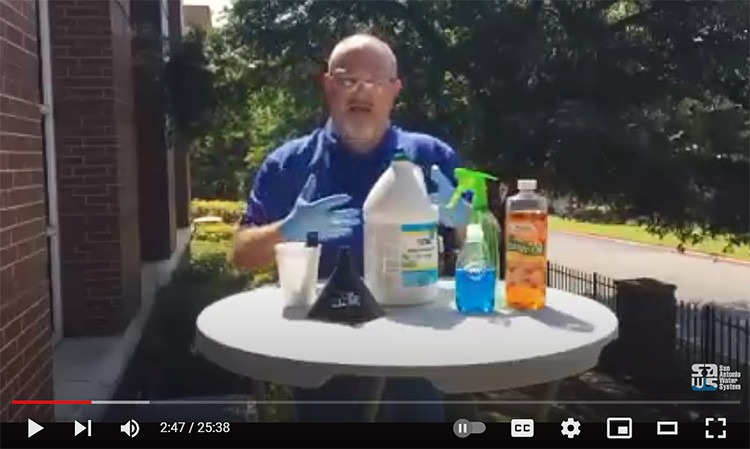Weeds are a part of life if you garden, but constantly pulling them doesn’t have to be. Try this simple, natural recipe for cooking summer weeds.
Weeds are a part of life if you garden or tend to a landscape. Sometimes it takes just as much time to pull weeds as it does to plant the perennials and shrubs you do want.
Despite the vast amounts of personal satisfaction that come from yanking a weed out of the flowerbed, when it comes to weeding crushed pink granite or flagstone, it’s harder to get the root out, and there’s always a little voice in the background whispering, “why can’t we spray these weeds and forget all this pulling?”
 Enter this simple, natural recipe to kill weeds. It’s easy to make and requires only three ingredients: orange oil, 20% white vinegar and dish soap.
Enter this simple, natural recipe to kill weeds. It’s easy to make and requires only three ingredients: orange oil, 20% white vinegar and dish soap.
Just mix:
- 1 gallon of 10-20 percent white vinegar.
- 2 ounces (or 4 tablespoons) orange oil or cleanser containing d-limonene.
- 2 ounces (or 4 tablespoons) dish soap.
Wearing proper eye protection and gloves, pour the vinegar into a five-gallon bucket and add the orange oil and dish soap. Mix thoroughly with a long-handled spoon or similar tool.
Decant some of the mixture into a spray bottle using a funnel and spray liberally onto the plants you intend to kill. Be sure to spray during the hottest part of a sunny day and cover all parts of the plant with the spray — the recipe works particularly well for weeds growing in full sun.
You may need to repeat the application after two days if rainfall or new shoots occur. You can also drench the plant roots once the top begins to die. Shake the mixture periodically while you’re applying it and only spray the plants you want to kill. While you enjoy the sunny fragrance of vinegar and citrus, you can watch the treated plants shriveling before your eyes in just a few minutes.
Many gardeners don’t like to spray weeds for fear that the material will drift onto valuable plants and cause damage or even death. But with the natural herbicide there’s less risk of residual damage. The mixture is not going to be as effective as commercially available herbicides at killing the roots, but it does a good job at shriveling and dispatching above-ground bits.
When it’s all said and done, using the natural recipe can save your back a few aches and still manage to keep weeds at bay for another week.


